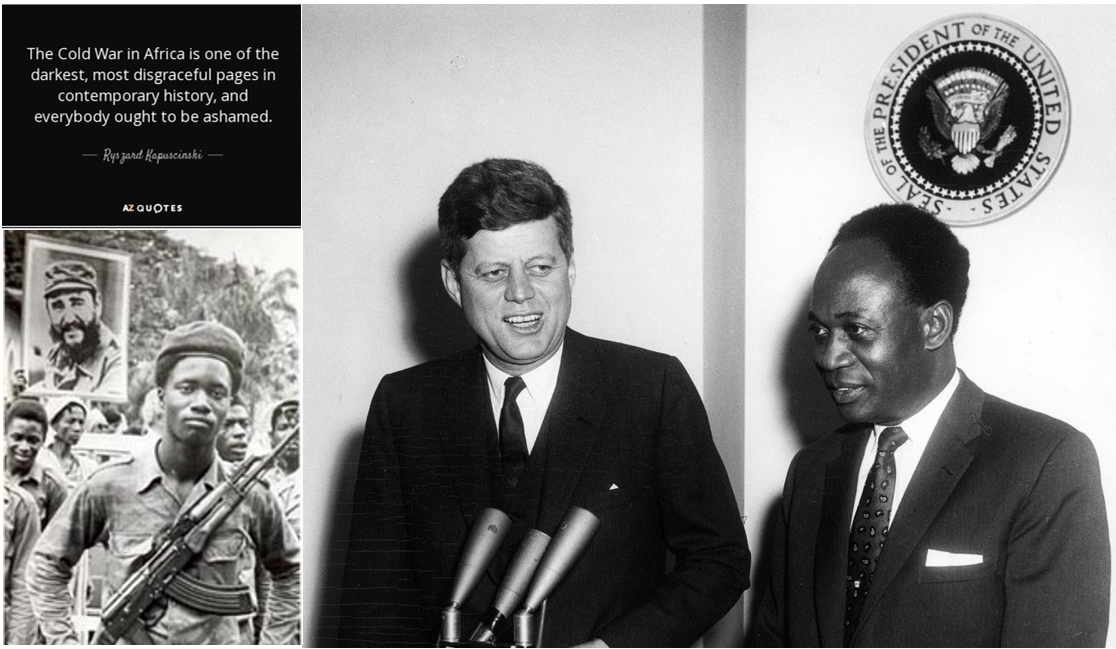

Photo credits: (right) “President John F. Kennedy Meets with the President of the Republic of Ghana, Osagyefo Dr. Kwame Nkrumah”, 8 March 1961, John F. Kennedy Presidential Library and Museum, JFKWHP-AR6409-A; (left) fighters in the Angolan civil war in front of Cuban Fidel Castro poster, https://socialistunity.com/cubas-role-in-african-liberation/.
Course description and objectives:
This graduate seminar engages with the interaction between African decolonization and global superpower rivalries, from the late 1950s until the end of the Cold War. It does so by interweaving the international, national and local spheres. Decolonization in the late 1950s and 1960s and the development of African independent nation-states interacted with the unfolding of the Cold War, on both a global and a local stage. In a global arena determined by the Cold War, African politicians needed to position themselves with reference to the geopolitical historical moment. Many African political actors sought to remain neutral and ‘non-aligned’, but others deliberately portrayed local conflicts in Cold War terms to sway the United States or Soviet Union and their allies to interfere. Often the intervening superpowers barely understood the African contexts and these proxy conflicts neither enjoyed a high priority in Washington nor Moscow.
In this seminar, students will explore the extent to which African states and political movements were the subject of manipulation by the superpowers. They will analyze the motivations underlying the policies of the United States and the Soviet Union (and their respective allies) in sub-Saharan Africa. Moreover, students will come to critically examine Odd Arne Westad’s ground-breaking approach, emphasizing the agency of non-western actors in shaping the form and extent of superpower intervention (or the lack of it) in African contexts and conflicts.
- Kursleiter*in: Golda Manderscheid
- Kursleiter*in: Alejandro Pascual Iranzo
- Kursleiter*in: Alejandro Pascual Iranzo
- Kursleiter*in: Babak Sadaghian
- Kursleiter*in: Prof. Dr. Marcia Schenck

